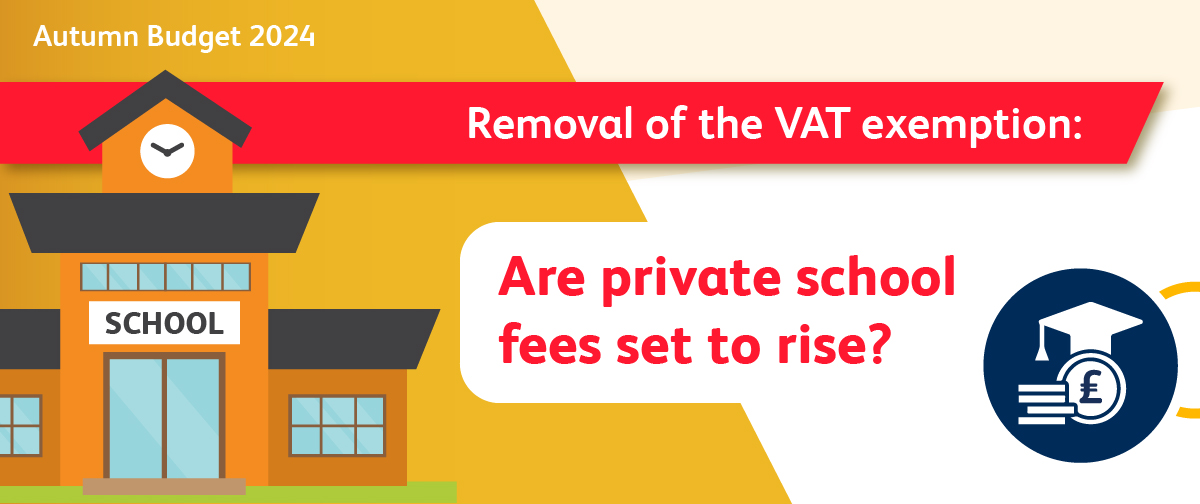
28 October 2024
by Wesley Coultas, Head of Investment Management
In a significant shift for families relying on private education, the newly elected Labour government has confirmed that a 20% VAT will be applied to private school fees from 1st January 2025. Additionally, it's widely expected that in the upcoming Budget, Chancellor Rachel Reeves will announce the removal of charitable tax relief on business rates for private schools, starting from April 2025. These changes are part of Labour’s broader plan to redirect funds towards state education, including boosting teacher recruitment.
This means families with children in private education, or those planning for it in the future, could see a substantial increase in costs. The timing and scale of these changes make it more important than ever for parents to reassess their financial planning to account for these new expenses.
While Labour’s VAT plan for private schools had been part of their pre-election messaging, many assumed the implementation would coincide with the start of the 2025/2026 academic year. Instead, the earlier start date of January 2025 has taken some by surprise, leaving a shorter window for financial adjustments.
The impact on families
Private school fees have already been rising, driven in part by inflation and increased operational costs. Now, with these additional changes looming, many parents are understandably concerned about the affordability of private education. However, there are several options available to help families manage these costs.
This article isn’t designed to offer personal advice, but we do recommend speaking with an Investment Manager if you’re uncertain about your best course of action. Below, we’ve outlined a few strategies that could help parents and grandparents in navigating these rising fees. As always, it’s important to note that some of these involve investment decisions where capital is at risk.
Potential strategies to consider
1. Prepay school fees:
One straightforward way to avoid upcoming cost increases is to prepay school fees before the VAT introduction. If you have the available funds, paying in advance could save you a significant amount. The exact savings will depend on the policy of the specific school, your ability to negotiate, and the fees at the time of payment. However, it’s essential to ensure that this approach doesn’t impact your other financial goals or create cash flow challenges.
Our Financial Planning team can help you map out a cash flow plan, ensuring you’re prepared to cover upfront fees without sacrificing other financial priorities.
2. Strengthen your savings plan:
For those unable or unwilling to prepay, it’s important to think about how you’ll generate the income needed to manage ongoing fee increases. With the spike in inflation of the last two years still having an impact, strategic investment planning becomes even more critical to ensure your savings grow in line with rising costs.
One option is investing in bonds or gilts, which can offer a set return by a specific date - perfect for planning around tuition payments. Our Gilt Portfolio Service is designed to help investors make the most of these types of assets.
Alternatively, equities can provide the potential for higher returns if you’re comfortable taking on more risk. Tax efficiency is also key - using your annual ISA allowance can protect and grow your savings more effectively.
Conclusion
While the upcoming changes to private school fees might seem daunting, families have options to manage these increases. Whether you’re already paying school fees or are planning for the future, getting the right financial guidance can make all the difference. At Walker Crips Investment Management, our team of experts is ready to help you plan for these changes and secure your financial future.
If you’d like to explore your options or need more advice, don’t hesitate to reach out. We’re here to assist you every step of the way.
Important Note
No news or research content is a recommendation to deal. It is important to remember that the value of investments and the income from them can go down as well as up, so you could get back less than you invest. If you have any doubts about the suitability of any investment for your circumstances, you should contact your financial advisor.